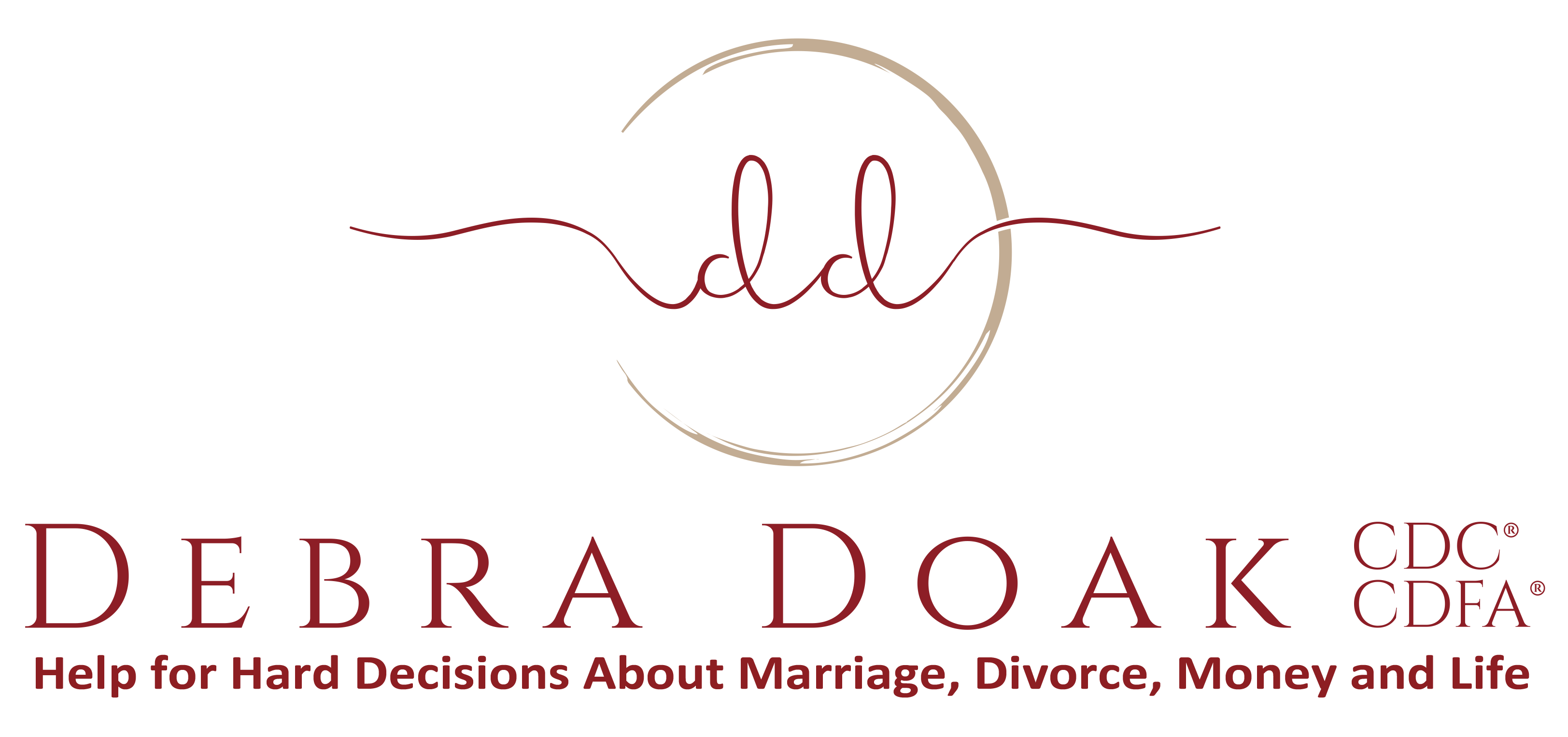
Stop Calling Them a Narcissist – It Can Actually Hurt Your Case
I’m on social media and I see it everywhere. Narcissist, narcissist, narcissist. But unless your spouse or co-parent has been formally evaluated and diagnosed by a certified mental health professional, I’m begging you to stop calling them a narcissist. Even if they have been diagnosed, using that label may not be the best route for achieving your divorce or custody goals.
I know there are many well-known organizations and social media influencers that are using and encouraging the use of this kind of language. The concepts of narcissism, emotional abuse, psychopathy, sociopathy, and coercive control are all helpful to understand what you’ve experienced. But as a divorce professional who does this every day, I can tell you there are 3 main reasons why this language can hurt (or at least not help) your case.
I’m gonna go ahead and warn you now that you may not like what you’re about to read. I’ll validate you in advance. And tell you that I’m sharing this because I’m for you. I want you to have both realistic expectations AND the best chance of getting your desired outcome. And labeling your partner as a narcissist is not the route to success.
#1 It Escalates Conflict
Nothing will make your life difficult faster than calling a narcissist a narcissist. When your spouse or co-parent discovers that you have referred to them as a narcissist in your filing or response, requested a psych eval, or mentioned it to a GAL, they will take it as a personal attack. People with these personalities feel as if the only option they have is to counterattack – and they sometimes come back hard. This can quickly create a snowball effect and before you know it, you’re defending yourself against challenging behaviors including process delays, refusal to negotiate, legal abuse, financial abuse, threats, stalking, and even false allegations.
What was a regular contested divorce with some conflict turns into a highly litigated divorce that can bankrupt you financially and emotionally. In his book Splitting: Protecting Yourself While Divorcing Someone with Borderline or Narcissistic Personality Disorder, Bill Eddy calls these individuals “blamers” and says, “The number-one external focus of blame and focus of attack is the person closest to the blamer: you. When targets fight back, blamers intensify their attack – with physical abuse, verbal abuse, distortion campaigns, or legal abuse – in frantic efforts to get others to change or to get revenge for perceived abandonment or narcissistic injuries”. If you want to keep conflict contained, stop calling them a narcissist.
#2 Assumption of Mutual Responsibility
Any court professional including a judge, magistrate, GAL, custody evaluator, etc… is operating under the assumption that you are both equally responsible for the inability to resolve your disagreements. Most are not mental health professionals and typically don’t have the domestic violence training, skills, or time to discern who is at fault for what. They may view your use of that label (especially if there is no formal diagnosis) as conflict-escalating, alienating, or gatekeeping behavior and assume you are the one causing problems.
Is this fair when you’re the one following the rules and doing all the right things? I know it doesn’t feel that way. You want others to grasp what you’ve been through (and may still be going through). But understand that these court officials begin from a place of neutrality. They don’t know either of you and in the short time these professionals do have to spend with you, your partner is likely to present very well. Without actual documentation, simply recounting stories about why your partner is a bad person or self-diagnosing them with a personality disorder will cast a shadow on you and be thrown out as “he said, she said” or worse, be interpreted as vengeful.
#3 ADA Guidance on Parenting
Even if you do have a diagnosis, our courts have been given guidance about how to navigate parenting when it comes to physical and mental disabilities. According to the United States Department of Health and Human Services (HHS) and the United States Department of Justice (DOJ), the Americans with Disabilities Act (ADA) prohibits the “removal of a child from a parent with a disability based on the stereotypical belief, unsupported by an individual assessment, that people with disabilities are unable to safely parent their children”. You can read the full guide here.
What this means is that courts should not discriminate against a parent with a disability (physical or mental) unless there is a demonstrated safety issue. The fact that your co-parent is more authoritarian or more permissive than you are is not going to be considered a safety issue. They will not be concerned that the other parent lets the kids have screen time instead of playing with them or isn’t more nurturing and emotionally available. Again, not safety issues. These will be seen as acceptable differences in parenting style.
Stop Calling Them a Narcissist and Do This Instead
You have 3 powerful tools at your disposal. And these are what will allow you to navigate your case without relying on the words “narcissist”, “abuser”, or “coercive control”.
1. Neutralize Conflict When Possible
Of course, you want to point out their bad behavior and hold them accountable for it, but poking the bear can just inflict more pain. Stop calling them a narcissist and use de-escalating language like “Thanks for bringing that up – let me give it some thought”, “I’ve never considered that – I’ll run that idea by my attorney”, or “I can hear/see you’re really angry/frustrated right now – this process is difficult but I trust that we’ll get to a resolution”. You’ll also want to have strong personal boundaries. Just because your partner wants to talk or engage in conflict doesn’t mean you need to participate. “I’m not prepared to discuss that right now”, “I’d prefer to talk about this when we’re in a mediation session (or through our attorneys)”, or “I’m not able to accommodate that at the moment”. Avoid the 3 A’s: admonish, advise, and apologize. Trying to tell your partner what they did wrong or what they could do better will just throw fuel on the fire. And apologizing will simply reinforce their belief that you’re to blame.
2. Adhere to Clean Hands Doctrine
This means behaving, communicating, and showing up in ways that consistently demonstrate that you are making every attempt to be collaborative and respectful. Your job is to make it easy for court professionals to identify who the problem is. Say please and thank you. Respond in a timely manner and follow court orders. Don’t disparage the other parent to or in front of your children. Avoid posting derogatory comments on social media and vent only to safe people. Assume every text and email you send will be shared with others including your partner’s attorney, a GAL, or a judge. Read this post on how high-conflict communication can cost you. DO NOT violate court orders. Your goal is to focus on your own behavior and not give your partner, their legal team, or court professionals anything to use against you. Stop calling them a narcissist and focus on making sure your side of the street is clean.
3. Document Patterns of Behavior
It’s not what you say, it’s what you can prove. Bill Eddy recommends gathering 3 types of evidence: false statements made by your partner, patterns of abuse, and the truth about you. If your partner is making false statements, they’re likely to get their story mixed up. Pay attention to what they say in texts, emails, legal correspondence, depositions, etc… Find and document the inconsistencies. Be prepared to provide evidence of the facts. If you have concerns about your partner’s parenting, documentation is a must. You can download a custody case organizer as well as get some great information from NY family law attorney Lauren Hunt on her resources page. This will also allow you to provide documentation of your parental involvement to demonstrate the truth about you. Written records like texts, emails, school or medical records, notes from your child’s therapist, and CPS or DFS reports can also be helpful as well as statements from those who know you and the children well.
You’ve been through enough with your spouse or co-parent. Your only goal now is to get to some sort of resolution so you can live in peace and freedom. That’s going to require both 1) an acceptance of how the family law system works and 2) doing everything in your power to keep things from escalating. The court system will not provide emotional justice no matter how hurt or angry you are. They will provide protection, however, the burden of proof is on you and you must be prepared to provide objective evidence to support your case. Calling them a narcissist doesn’t achieve either of those goals and it keeps you stuck on the label rather than working toward an outcome. Focus on strategy, not their character flaws – that’s what will really help you in the long run.
Wishing you strength and wisdom,




